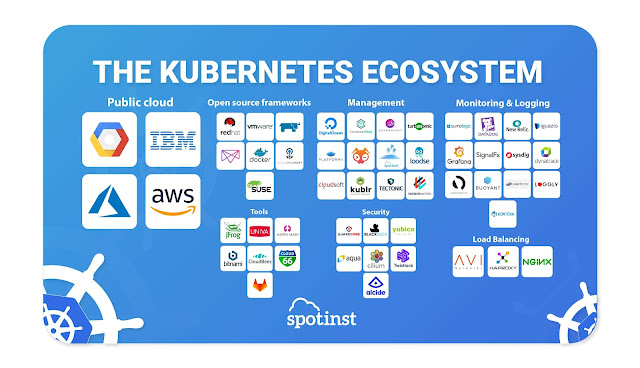Kubernetes is an open-source container orchestration platform that automates the deployment, scaling, and management of containerized applications. It was originally developed by Google and is now maintained by the Cloud Native Computing Foundation (CNCF).
In the context of software development, containers are lightweight, portable, and isolated environments that encapsulate an application and its dependencies. Kubernetes provides a framework for managing these containers, allowing you to easily deploy and manage applications across a cluster of machines.
Here are some key concepts and features of Kubernetes:
Nodes: Kubernetes runs on a cluster of machines called nodes. Each node can be a physical machine or a virtual machine.
Pods: The basic unit of deployment in Kubernetes is a pod. A pod is a group of one or more containers that are deployed together on the same node and share the same network namespace.
Replication and Scaling: Kubernetes enables you to scale your application by running multiple replicas of a pod across different nodes. This helps to distribute the workload and provides high availability.
Services: Services in Kubernetes provide a stable network endpoint to access a group of pods. They enable load balancing and allow applications to communicate with each other.
Labels and Selectors: Kubernetes uses labels to organize and select sets of objects, such as pods or services. Selectors are used to filter and identify specific objects based on their labels.
Deployments: Deployments allow you to manage the rollout and updates of your application. You can specify the desired state of your application, and Kubernetes will handle the necessary changes to achieve that state.
ConfigMaps and Secrets: Kubernetes provides ConfigMaps and Secrets to manage application configuration and sensitive data. ConfigMaps store key-value pairs, while Secrets are used to store sensitive information such as passwords or API keys.
Persistent Volumes: Kubernetes supports persistent storage for applications that require data persistence. Persistent Volumes (PVs) and Persistent Volume Claims (PVCs) are used to manage and provision storage resources.
Kubernetes has become the de facto standard for container orchestration due to its powerful features, scalability, and strong community support. It allows developers to focus on writing code while abstracting away the complexities of infrastructure management, making it easier to build and deploy applications at scale.
Source: Some or all of the content was generated using an AI language model


No comments:
Post a Comment
Contact The Wizard!
(he/him)